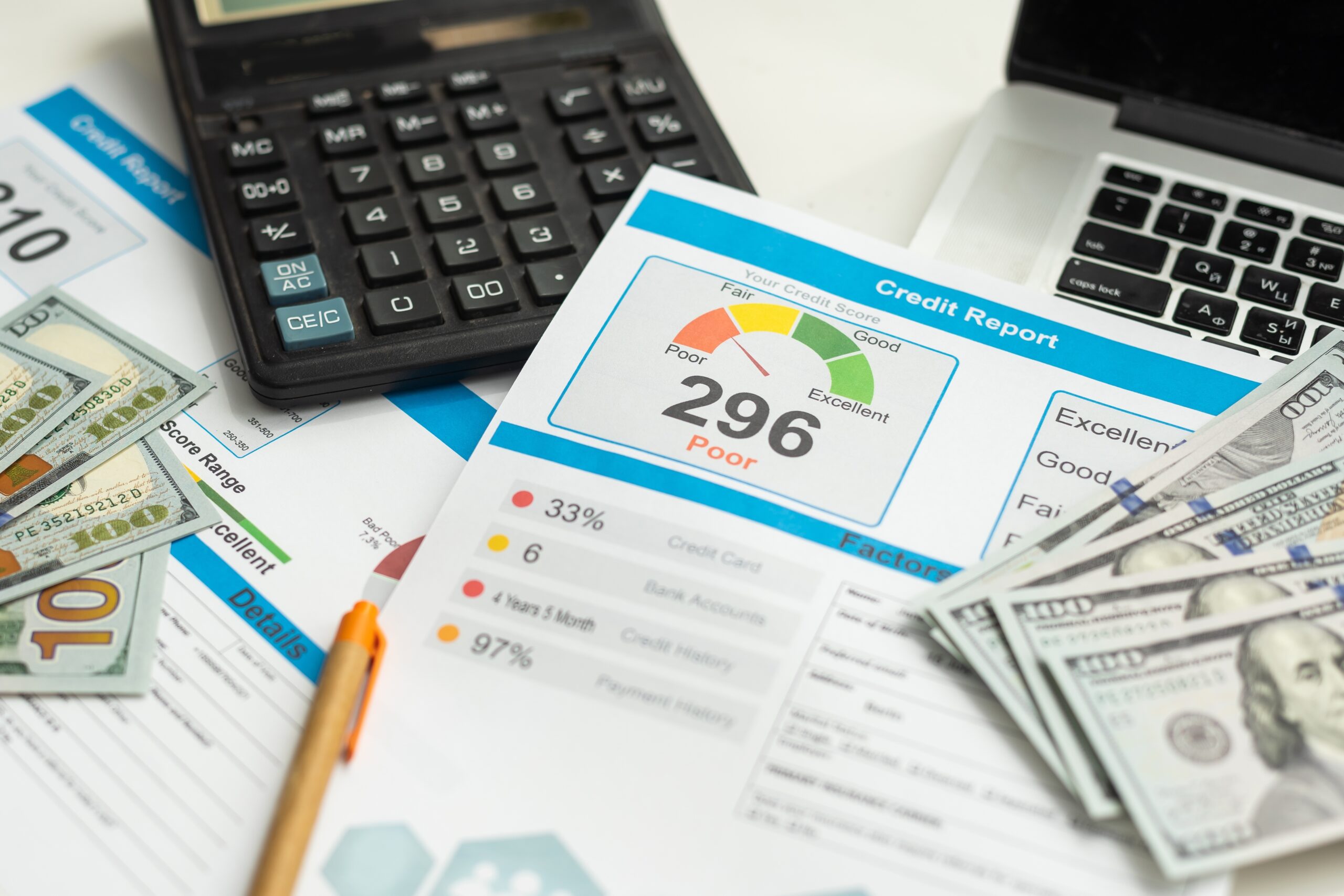Your credit score is your ticket to making the financial moves you want, like buying a house or car. Knowing your score is important. However, knowing where it falls in the overall range is also crucial. This helps you understand your ability to qualify for loans or financing.
Why Credit Scores Matter
Credit scores are calculated by the credit bureaus using two different models: FICO and VantageScore. They use factors like credit utilization, payment history, and the number and age of your accounts.
Lenders and landlords use your credit score to decide how risky it is to approve your loan or apartment application. The higher your score, the more reliable you seem to them. It also impacts the interest rate you get or how much money you qualify for.
Understanding Credit Score Ranges
Your credit score can fall anywhere between under 500 and over 800. This range is broken down into different credit score ratings.
FICO:
- Poor: Below 580
- Fair: 580–669
- Good: 670–739
- Very Good: 739–799
- Exceptional: 800-850
VantageScore:
- Very Poor: Below 500
- Poor: 500–600
- Fair: 601–660
- Good: 661–780
- Excellent: 781–850
What is a Low Credit Score?
Now that you know the breakdown of the different scoring models, you might be wondering, “Do I have a bad credit score?”
If your overall rating falls below 579 on the FICO scale or 660 on the VantageScore scale, you are typically considered to have a bad credit score. As a general rule of thumb, a score under 600 puts you in the poor credit score range.
What Causes a Bad Credit Score?
The same factors that make up your credit score can also lower it. Since keeping your accounts up to date is crucial, missing payments will result in a lower score. Similarly, high credit utilization can cause a bad credit score. You want to keep your overall usage around 30%.
When you apply for a new credit account, the lender runs your credit to see if you qualify. These stay on your credit report for two years. Too many hard credit inquiries can lower your score. This is especially true if you apply for several loans quickly.
Not having a credit history will mean a lower score if you are just starting out. The credit bureaus need time to gather information. Your score will improve as your accounts mature.
Consequences of a Bad Credit Score
With a lower credit score, you have fewer options for financing. You may also face other consequences:
- You may not qualify for loans from traditional lenders. This can be a problem if you need money in an emergency or want to pay for home renovations.
- A mortgage or car loan will have higher interest rates, costing you more money in the long run.
- It might be harder to get approved for a lease. You might need to pay a higher security deposit or get a cosigner.
- You won’t qualify for credit cards with good rewards or cash back. In some cases, you might only get a secured credit card.
- You may need to pay a deposit for utilities, a cell phone, or an internet plan. This can delay your connection date until you have the money.
Ways to Improve Your Credit Rating
Understanding a low credit score is only one part of the equation. Here are a few steps you can take to develop good financial habits and increase your score.
- Monitor your credit: It is important to monitor your credit score. It can change each time your creditors update the bureaus, which happens about once a month. This can help you check for any mistakes and ensure things are being reported accurately.
- Get current on payments: Being late on payments can lower your score and put you at risk of having your accounts become delinquent or close. Avoid late payments and always pay at least the minimum due so they don’t impact your credit or cost you late fees.
- Lower your credit utilization: Be mindful of how much of your credit you’re using. You can lower your credit utilization ratio by paying off your debt. You can also open another account or increase your credit limit. If you have high utilization, paying more than the minimum each month can help you lower your balance faster.
- Consider debt consolidation: A high debt load can make increasing your score difficult. A debt consolidation loan could be a good choice if you have several accounts and payments. It can also help if you are only making the minimum payments and struggling to get ahead. This kind of personal loan will allow you to make one payment and pay off your debts sooner, increasing your credit rating.
How Balance Credit Can Help
A low credit score isn’t permanent. There are plenty of strategies to reduce your debt and increase your score to meet your financial goals.
However, that can take time, and it can feel like a dead end if you’re struggling to get the funds you need because of your low credit score. Even with a score in the poor credit range, you still have options.
We understand that a bad credit rating can be limiting, but life happens, and sometimes you need extra cash. Our personal loans for bad credit allow you to get the money you need without worrying about your credit score.






